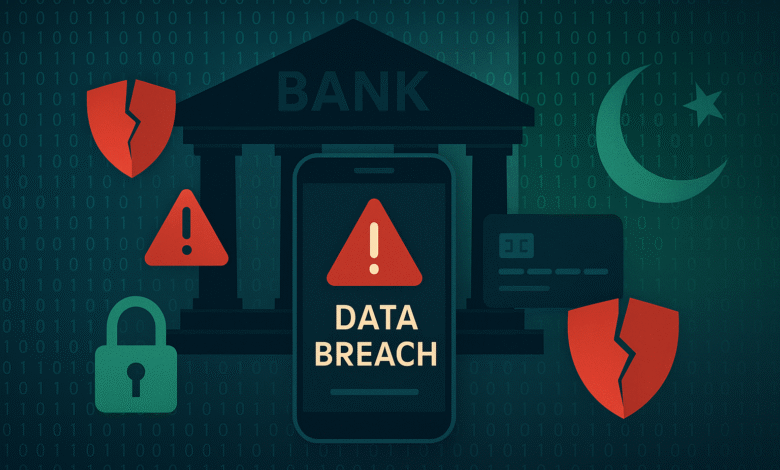Critical Security Flaws Pakistani Banks Don’t Want You to Know
Discover hidden critical security flaws in Pakistani banks that put your money at risk. Learn protection tips and banking vulnerabilities exposed.

The digital banking revolution in Pakistan has transformed how millions of citizens manage their finances. However, beneath the convenience of mobile banking apps and online transactions lies a troubling reality: critical security flaws that expose customers to unprecedented risks. While Pakistani banks promote their digital services as safe and secure, recent cybersecurity assessments reveal vulnerabilities that could compromise your financial data and hard-earned savings.
The Hidden Reality of Pakistani Banking Security
Pakistan’s banking sector has experienced rapid digitization, with over 15 million mobile banking users registered across major financial institutions. Yet this growth has outpaced security implementations, creating dangerous gaps that cybercriminals actively exploit. Critical security flaws in banking systems aren’t just technical glitches – they’re systematic weaknesses that threaten the financial stability of ordinary citizens.
Why Banks Keep Security Issues Secret
Financial institutions rarely publicize security vulnerabilities for obvious reasons. Revealing critical security flaws could trigger customer panic, regulatory scrutiny, and competitive disadvantage. However, this culture of secrecy leaves customers unaware of the risks they face daily when conducting digital transactions.
Major Security Vulnerabilities in Pakistani Banking Systems
1. Inadequate Multi-Factor Authentication
Most Pakistani banks still rely on basic SMS-based two-factor authentication, which cybersecurity experts consider insufficient. SMS messages can be intercepted through SIM swapping attacks, where fraudsters convince telecom operators to transfer your phone number to their device. Once they control your number, they can bypass authentication measures and access your banking accounts.
The Risk: Cybercriminals can gain complete access to your bank account using just your phone number and basic personal information.
Real Impact: Cases have been reported where customers lost substantial amounts because their SMS codes were intercepted during SIM swapping attacks.
2. Weak Password Policies
Despite handling sensitive financial data, many Pakistani banks maintain surprisingly lenient password requirements. Some institutions still allow:
- Simple six-character passwords
- Common password patterns
- Lack of regular password updates
- No restrictions on password reuse
These critical security flaws make it easy for hackers to break into customer accounts using brute force attacks or credential stuffing techniques.
3. Outdated Encryption Standards
Several Pakistani banks continue using outdated encryption protocols that modern cybercriminals can easily compromise. While international standards recommend AES-256 encryption, some local institutions still use weaker algorithms that provide insufficient protection for sensitive financial data.
The Danger: Weak encryption means your personal and financial information travels across the internet in a format that skilled hackers can decode.
Also Read:
Mobile Banking App Vulnerabilities
Insecure Data Storage
Investigation of popular Pakistani banking apps reveals that many store sensitive information locally on devices without proper encryption. This creates critical security flaws because:
- Lost or stolen phones can be compromised
- Malware can access stored financial data
- Device repairs might expose personal information
Insufficient App Security Testing
Unlike international banks that conduct regular penetration testing, many Pakistani financial institutions perform limited security assessments of their mobile applications. This oversight allows vulnerabilities to persist undetected for months or years.
API Security Weaknesses
Banking apps communicate with bank servers through Application Programming Interfaces (APIs). However, many Pakistani banks implement poorly secured APIs that expose customer data to potential interception and manipulation.
Online Banking Portal Risks
Session Management Issues
Pakistani banking websites often maintain user sessions for extended periods without proper validation. This means if someone gains access to your computer or mobile device, they might access your banking account even after you think you’ve logged out.
Cross-Site Scripting Vulnerabilities
Many local banking portals remain vulnerable to cross-site scripting (XSS) attacks, where malicious code can be injected into legitimate banking websites to steal user credentials and personal information.
Inadequate Input Validation
Poor input validation on banking forms allows cybercriminals to inject malicious code that can manipulate database queries and potentially access unauthorized information.
Also Read: Cybersecurity Essentials for Pakistani Small Businesses: Tools and Best Practices
ATM and Card Security Flaws
Skimming Device Vulnerability
Pakistani ATMs often lack advanced anti-skimming technology, making them vulnerable to card skimming devices that steal card information and PIN numbers. These critical security flaws affect physical banking infrastructure and put customers at risk during routine transactions.
Weak Card Authentication
Many Pakistani banks still issue cards with magnetic stripes alongside EMV chips. However, if merchants or ATMs don’t properly utilize chip technology, transactions fall back to less secure magnetic stripe processing.
Limited Real-Time Monitoring
Unlike international banks that monitor transactions in real-time for suspicious activities, many Pakistani institutions rely on delayed fraud detection systems that identify problems only after significant damage occurs.
Internal Security Weaknesses
Inadequate Employee Training
Bank employees often lack comprehensive cybersecurity training, making them vulnerable to social engineering attacks. Fraudsters exploit this weakness by impersonating customers or authorities to extract sensitive information from bank staff.
Insufficient Access Controls
Many Pakistani banks maintain poor internal access controls, allowing employees broader system access than necessary for their roles. This creates insider threat risks and increases the potential for data breaches.
Weak Vendor Management
Banks often work with third-party technology vendors who may not maintain the same security standards. These partnerships can introduce critical security flaws through poorly secured integrations and data sharing agreements.
The Cost of Security Negligence
Financial Losses for Customers
Cybersecurity incidents in Pakistani banking have resulted in millions of rupees in customer losses. Victims often struggle to recover their money because banks dispute liability and investigation processes are lengthy and complex.
Identity Theft Consequences
When banking security fails, customers face identity theft risks that extend far beyond immediate financial losses. Stolen personal information can be used for:
- Opening unauthorized accounts
- Applying for loans and credit cards
- Conducting fraudulent transactions
- Selling information on dark web markets
Economic Impact on Banking Sector
Security breaches damage customer trust and can trigger regulatory penalties, ultimately affecting the stability and growth of Pakistan’s financial sector.
How to Protect Yourself Despite Banking Security Flaws
Personal Security Measures
While banks should address these critical security flaws, customers must take proactive steps to protect themselves:
Account Monitoring: Regularly review account statements and transaction histories for unauthorized activities.
Strong Authentication: Use complex, unique passwords for each banking account and enable all available security features.
Secure Networks: Avoid banking on public Wi-Fi networks and ensure your home internet connection is properly secured.
Device Security: Keep your mobile devices and computers updated with the latest security patches and use reputable antivirus software.
Safe Banking Practices
Verification Protocols: Always verify suspicious communications by contacting your bank directly through official channels before providing any information.
Transaction Limits: Set reasonable daily transaction limits to minimize potential losses if your account is compromised.
Regular Updates: Keep banking apps updated and log out completely after each session.
Alert Systems: Enable all available account alerts to receive immediate notifications of account activities.
What Banks Should Do to Address Security Flaws
Immediate Actions Required
Pakistani banks must prioritize security improvements by implementing:
Advanced Authentication: Multi-layer authentication systems that don’t rely solely on SMS verification.
Regular Security Audits: Comprehensive testing of all digital platforms and infrastructure to identify and address vulnerabilities.
Employee Training: Intensive cybersecurity training programs for all staff members.
Customer Education: Clear communication about security risks and protective measures.
Long-term Security Improvements
Infrastructure Modernization: Upgrading legacy systems that contain inherent security weaknesses.
Regulatory Compliance: Adhering to international banking security standards and best practices.
Incident Response Planning: Developing comprehensive plans for managing security breaches and customer communication.
The Role of Regulatory Authorities
The State Bank of Pakistan and other regulatory bodies must enforce stricter cybersecurity standards for financial institutions. Current regulations are insufficient to address the sophisticated threats facing modern banking systems.
Needed Regulatory Changes
Mandatory Security Standards: Implementing comprehensive cybersecurity requirements for all banking operations.
Regular Compliance Audits: Conducting frequent assessments of bank security measures and imposing penalties for non-compliance.
Consumer Protection: Establishing clear guidelines for customer protection and compensation in case of security breaches.
Future Outlook for Pakistani Banking Security
The evolution of cybersecurity threats means Pakistani banks must continuously adapt their security measures. Emerging technologies like artificial intelligence and machine learning offer opportunities for improved fraud detection and threat prevention.
Technological Solutions
AI-Powered Monitoring: Implementing intelligent systems that can detect unusual transaction patterns in real-time.
Biometric Authentication: Adopting fingerprint, facial recognition, and voice authentication technologies.
Blockchain Integration: Exploring distributed ledger technologies for enhanced transaction security.
Conclusion
The critical security flaws in Pakistani banking systems represent a serious threat to millions of customers who rely on digital financial services. While banks may prefer to keep these vulnerabilities secret, consumer awareness is essential for driving necessary improvements.
As customers, we must demand better security measures while taking personal responsibility for protecting our financial information. The combination of improved bank security practices, stronger regulatory oversight, and informed consumer behavior will ultimately create a safer banking environment for all Pakistanis.
The digital transformation of Pakistan’s banking sector offers tremendous opportunities for financial inclusion and economic growth. However, realizing these benefits requires addressing the underlying security challenges that currently put customer assets and personal information at risk. Only through transparent acknowledgment of existing problems and committed efforts to resolve them can Pakistani banks build the trust and security that modern digital banking requires.
Remember: your financial security depends not just on your bank’s promises, but on understanding the risks and taking appropriate protective measures. Stay informed, stay vigilant, and demand better security standards from your financial institutions.











